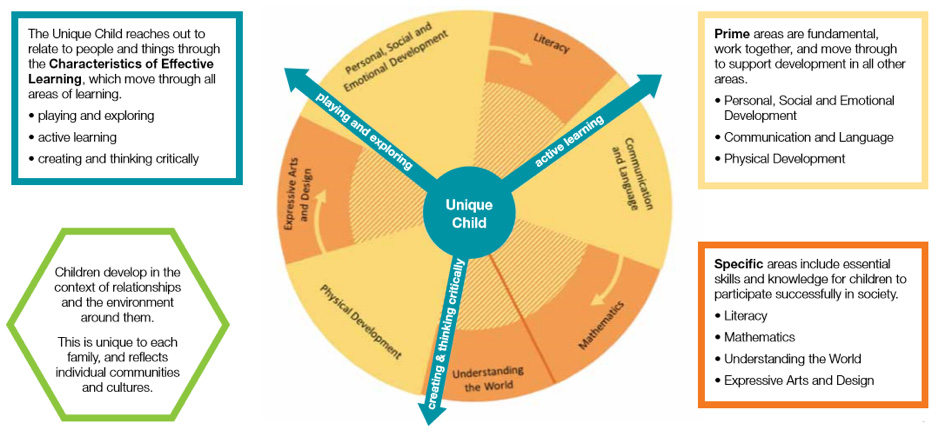Early Years Foundation Stage (EYFS)
Planning In the EYFS:
We use the seven areas of learning from the Early Years Foundation Stage Guidance to plan for each child and promote development on an individual basis. We plan according to a child’s interest and everything we do is based around the needs and interest of a child, developing on cultural capital. Working hand-in-hand with the Early Years Foundation Stage Guidance, the educational development of each child is monitored by our qualified Childcare Practitioners ensuring the children are given a wide variety of age-appropriate early learning experiences and support.
The seven areas of learning used for planning are:-
- Personal, Social and Emotional Development
- Physical Development
- Communication and Language
- Literacy
- Mathematics
- Understanding the World
- Expressive Arts and Design
All areas of learning are equally important and your child will progress through each of the age band, by observations taken by your child’s keyworker.
Characteristics of Effective Learning
The ways in which your child engages with other people and their environment – playing and exploring, active learning, and creating and thinking critically – underpin learning and development across all areas and support your child to remain an effective and motivated learner.
The prime areas begin to develop quickly in response to relationships and experiences, and run through and support learning in all other areas. The prime areas continue to be fundamental throughout the EYFS.
The specific areas include essential skills and knowledge. They grow out of the prime areas and provide important contexts for learning.

Playing and Exploring –
Engagement
- Finding out and exploring
- Playing with what they know
- Being ‘willing’ to have a go
Active Learning –
Motivation
- Being involved and concentrating
- Keeping trying
- Enjoying achievements what they set out to do
Creating & Thinking Critically –
Intellectual
- Having their own ideas
- Making links
- Choosing the way to do things

